After-Hours Tour of the Fraunces Tavern Museum: "Path to Liberty"
Explore a new exhibit inside the oldest building in Manhattan, a witness to history throughout the Revolutionary War Era!


This is the first in a series on New York City bridges that allow pedestrians to enjoy the architecture and unique vistas bridges have to offer. The George Washington Bridge was the first bridge that I walked across. While not as majestic or as popular as the Brooklyn Bridge, or long as the Manhattan Bridge, the George Washington Bridge provides a memorable experience for those who are willing to brave its span.
Construction began on the bridge in 1927 and was completed in 1931. The bridge was designed by Othmar Amman (who also designed the Throgs Neck Bridge, Bronx Whitestone, Verrazano-Narrows, and Bayonne Bridges). Cass Gilbert (who was also designed the Woolworth Building, the Alexander Hamilton Custom House, the New York Life Building, and the Thurgood Marshall Federal Courthouse) designed a granite encasement topped with an observation deck and restaurant for the bridge’s two towers.
Cass Gilbert’s proposed design of the George Washington Bridge:

However, due to the depression Gilbert’s vision was never realized and today we are left with the Amman’s unfinished masterpiece. The bridge was the longest suspension bridge in the world, until the completion of the Golden Gate Bridge. It was originally built with only one level, a second was added in 1962. The suspension cables were manufactured by John A. Roebling and Sons (Roebling, who founded the company was the designer of the Brooklyn Bridge).
I began my journey in Fort Lee, New Jersey on the north walkway:
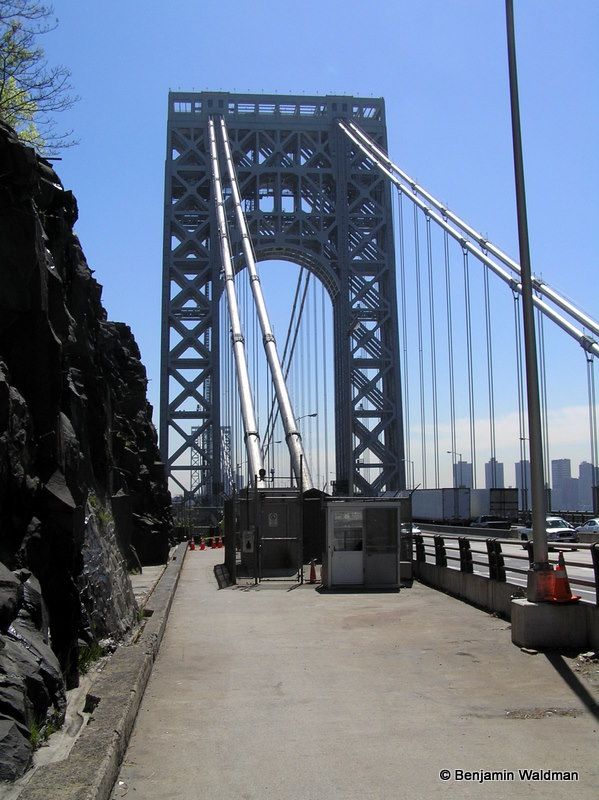
Views of the New Jersey Palisades:
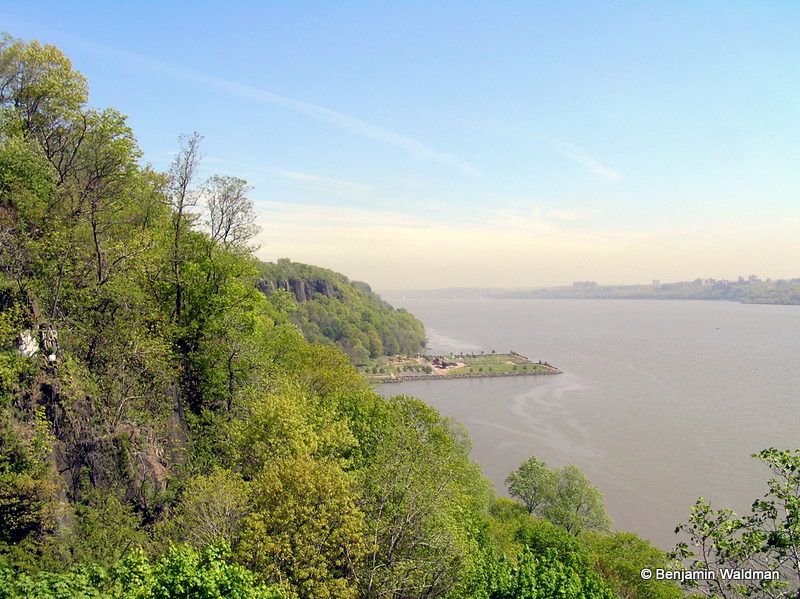
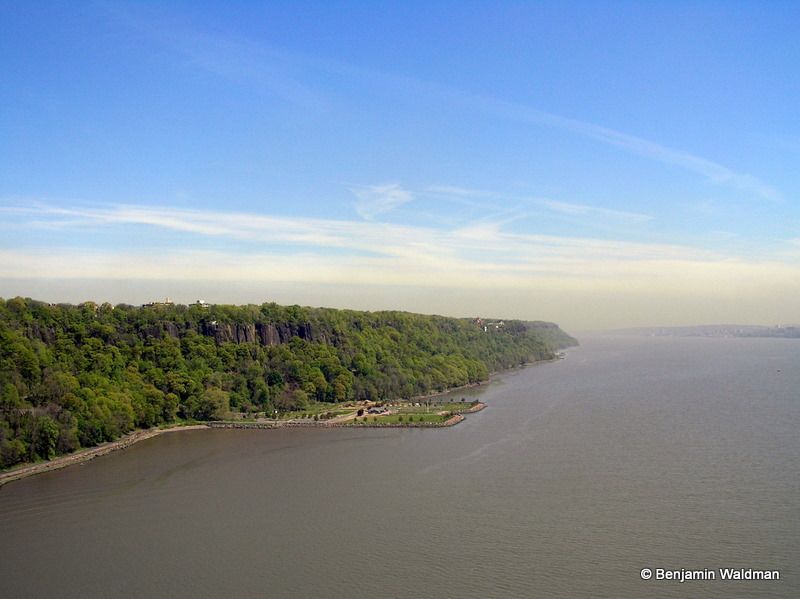

New York City from the George Washington Bridge. The Cloisters and Castle village are visible in the next two photographs:
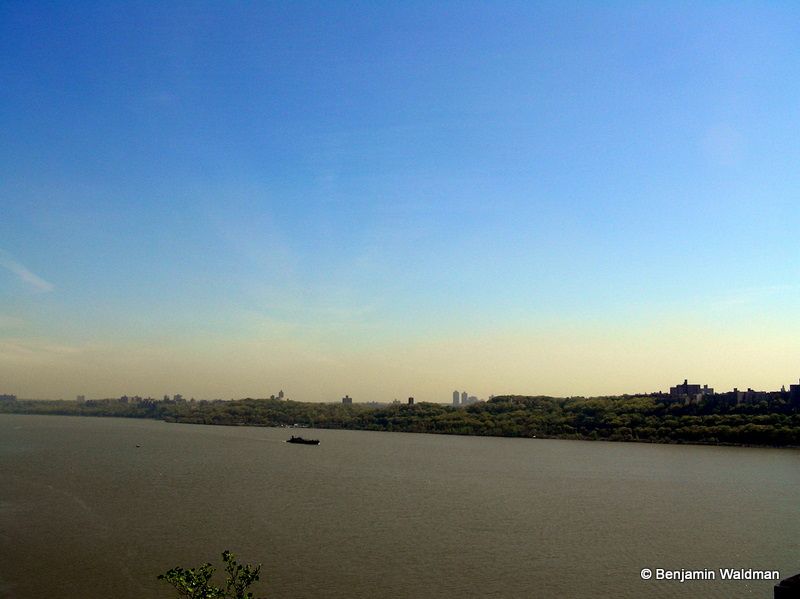
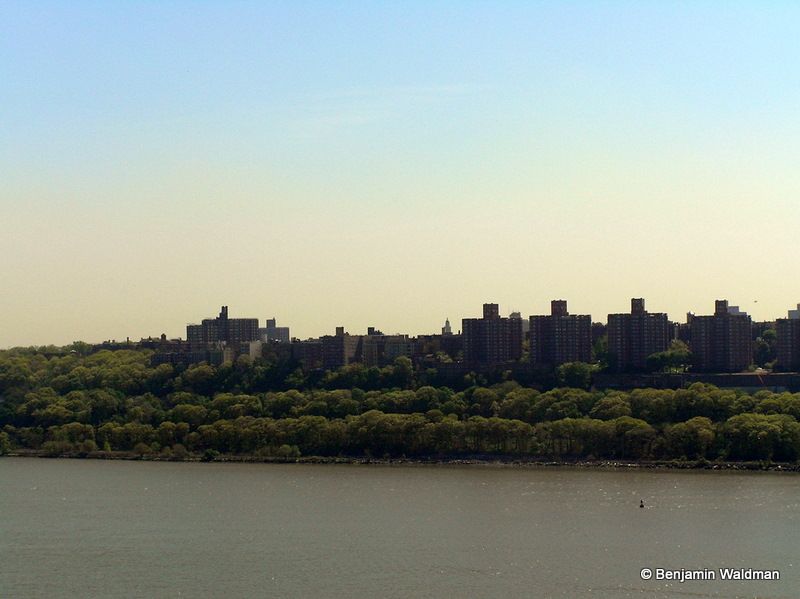
At the half way point the Hudson River appears to disappear into the horizon:
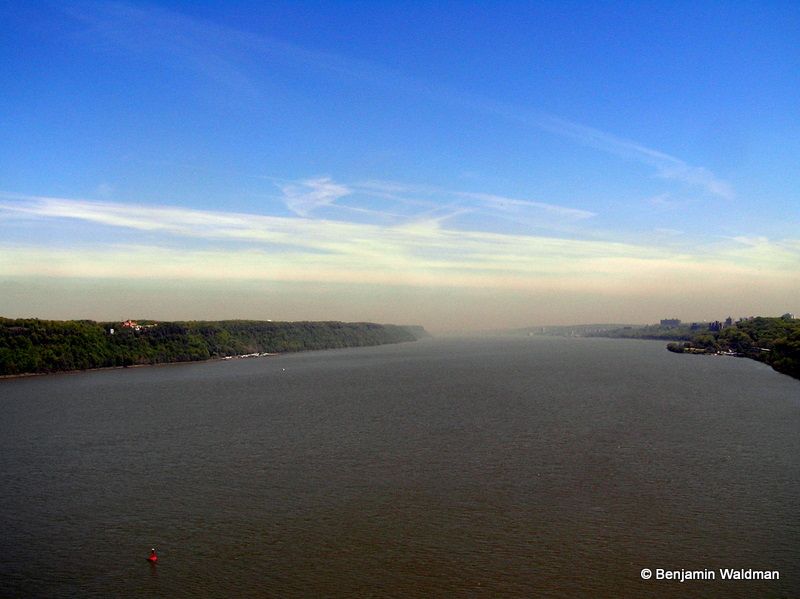
Nearing the end of my trip I took note of how far I had come and how the bridge appeared from the New York side:
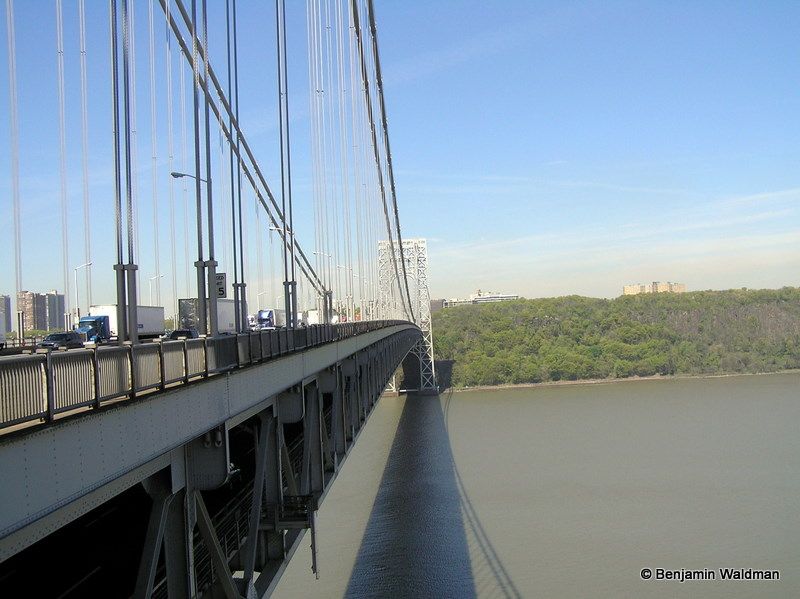
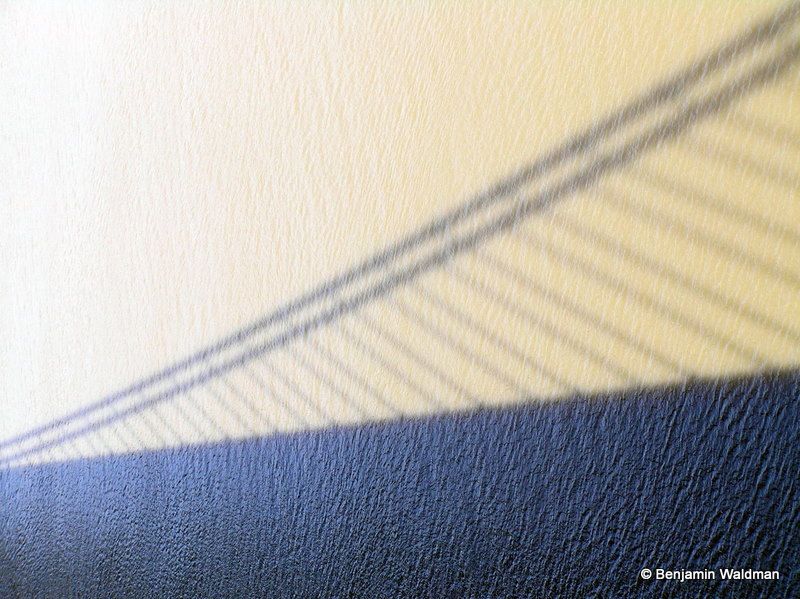
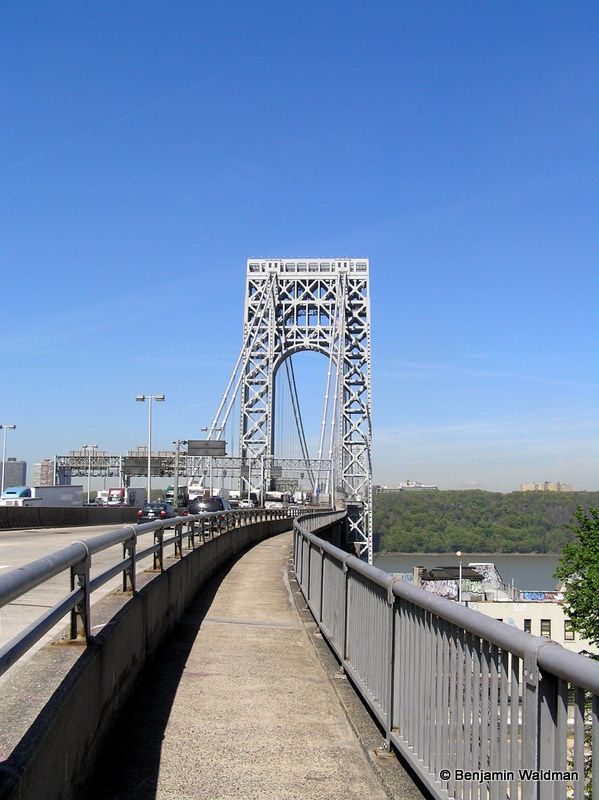
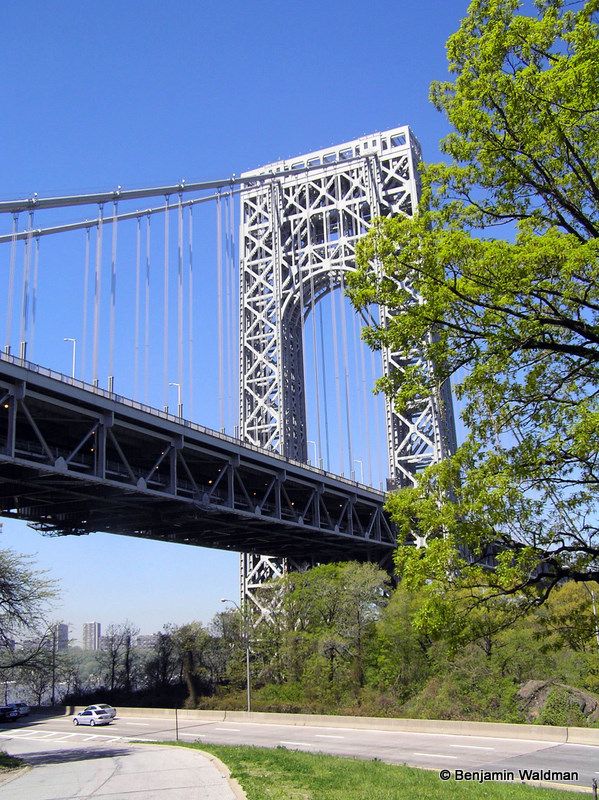
I ended my trip in Manhattan where I stopped once more to take in the grandeur of the Palisades:
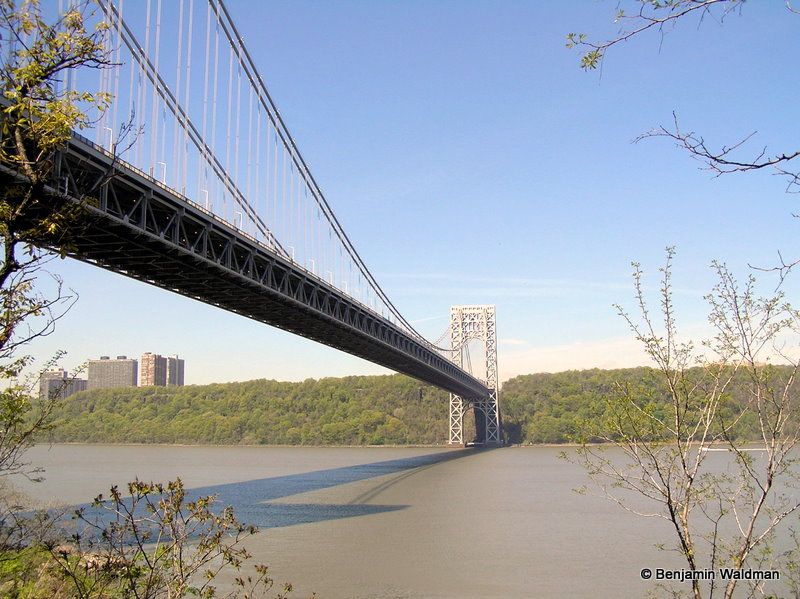
Subscribe to our newsletter